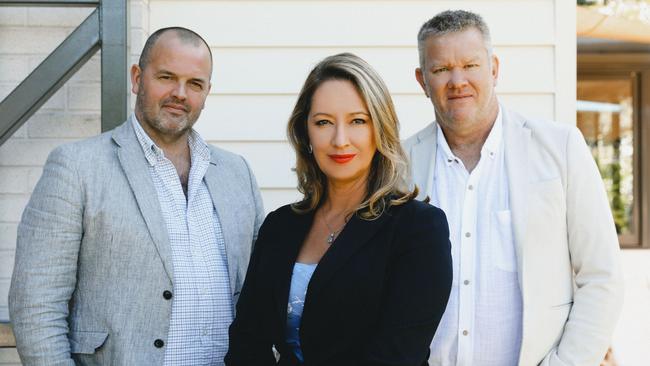Superannuation gender gap must be addressed, fees in focus: Super Fierce
The October federal budget presents an opportunity for the government to get quick runs on the board and narrow the superannuation gap between men and women.

The October federal budget presents an opportunity for the Albanese government to get quick runs on the board and narrow the superannuation gap between men and women, before focusing on any bigger reforms.
That’s the view of Super Fierce co-founder and chief Trenna Probert, who believes paying super on paid parental leave is an important measure that can be actioned quickly by government. Super Fierce is a wealth advice platform that compares more than 359 super funds and helps facilitate switching where it identifies better returns or lower-fee funds.
Ms Probert said on average women were retiring with 40 per cent to 47 per cent less super than men, underscoring the need for changes to the $3.3 trillion super system.
“It’s tremendously important and not just from an economic perspective,” she said. “If the government had actually paid attention to why women want super to be paid on parental leave and focused on that, rather than what that economic impact might actually be, they would be in a better position for understanding why these reforms matter.
“There are very small things that can be done that will make an impact on how women feel as valued members of society, and then we can start to work on the bigger things … We just need them to act.”
Ms Probert’s co-founder and husband Craig Swanger said as well as paying super on paid parental leave, men and partners could consider diverting their super payments to a spouse on maternity leave to help narrow the retirement gap.
Both Ms Probert and Mr Swanger are ex-Macquarie Group managers, with the former working in strategy and the latter having a long stint with the company, including as the bank’s investment chief and head of innovation.
The government’s jobs summit this week will include an “overarching focus on women’s experiences of the labour market and the challenges of ensuring that women have equal opportunities and equal pay”, according to Treasury’s issues paper. The government is also reportedly planning a shake-up of the Fair Work Act, which may see mandated gender pay gap reporting for larger companies.
But the heightened focus on gender pay equality also comes as the super industry has started debating what measures may be included in the budget, largely though, to bring about savings.
Colonial has warned advisers of a potential freeze on superannuation tax concessions, meaning a slated automatic expansion of the $1.7m tax-free super threshold may not occur.
Super Fierce started operating five months ago to assist predominantly women in assessing their super fund options.
To date, it calculates it will save its customers some $116m in anticipated super fees. That is based on the assumption the customer stays with the better returning or lower-cost fund until they retire at age 67.
Within the $116m of expected fee savings, the average customer is 36, and the bulk of anticipated savings end up with their female customers. They receive an average $125,000 in savings apiece.
“Australians pay an extraordinary $32bn in annual fees to super funds — at least half of which is wasted on poor performing funds,” Ms Probert said.
Mr Swanger said: “We pay more in fees to super funds than we do collectively to every nurse in the country.”
Super Fierce last month kicked off its own performance index, which uses a proprietary model to track returns, fees and other factors over the last 20 years, through market peaks and troughs.
It found just 15 super funds outperformed in all categories over the period, with the index launched due to perceived deficiencies in existing data and comparison sources. Among the 15 were AustralianSuper, Qantas Super, Hostplus, MyLifeMyMoney Super and NGS Super.
“There’s no consistency and no scrutiny to ensure everybody is using the same term for the same type of definition,” Ms Probert said. “Our motivation here is to unravel the complexity.”
Mr Swanger said there were issues around the definition of a balanced fund in existing performance tables, given some funds technically fell outside the definition, by holding more riskier growth assets.
“It’s just odd that there hasn’t been a like-for-like comparison and that’s just a sign of an industry that has it very easy,” he added.
Super Fierce charges a flat fee of $365 to help a customer switch super funds, while a statement of advice based on an individual’s circumstances is free.
But it’s likely to be a hard slog for the start-up in gaining market traction.
The company raised capital from family offices, venture capitalists and angel investors including South Australian businessman Raymond Spencer earlier this year, and plans to kick off another raising in coming months.
Super Fierce is also planning to launch a subscription model and other products, flagging interest in areas such as investing, home ownership, and small business funding.







To join the conversation, please log in. Don't have an account? Register
Join the conversation, you are commenting as Logout